为什么中国在经济上比印度大得多、发达得多,但在美国和科技行业的印度 CEO 却比中国 CEO 多得多?
正文翻译
Why is China much larger and more-developed than India economically but there are far more Indian CEOs in the US and the technology industry than Chinese CEOs?
为什么中国在经济上比印度大得多、发达得多,但在美国和科技行业的印度 CEO 却比中国 CEO 多得多?
为什么中国在经济上比印度大得多、发达得多,但在美国和科技行业的印度 CEO 却比中国 CEO 多得多?
评论翻译
Prashant Kumar
Indians have a slave mentality. Since time immemorial we have been enslaved, first by the Islamic rulers, and then by the Britishers, now it is the American tech giants. They love being slaves. They love working for American companies, because they don’t want to risk it, they play it safe, so instead of innovating, instead of creating anything new, they get settled for foreign companies, they start toiling for their American masters.
This slave mentality permeates our culture, it is inherent to every Indian. Everyone here wants to play it safe, to traverse the most traveled road.
Chinese, on the other hand, are innovative and ingenious. They create their own FB, Google, YouTube and become CEOs of these.
Which of these is better for one’s country?, I ask you.
印度人有奴隶心态;自古以来,我们一直被奴役,先是被伊斯兰统治者,然后是英国人,现在是美国科技巨头。他们喜欢做奴隶,他们喜欢为美国公司工作,因为他们不想冒这个险,他们稳扎稳打,所以他们不去创新,不去创造新的东西,他们满足于外国公司,他们开始为他们的美国主子辛苦工作。
这种奴隶心态渗透在我们的文化中,是每个印度人与生俱来的。这里的每个人都想谨慎行事,走过最多人走过的路。
另一方面,中国人具有创新性和独创性。他们创建了自己的FB、谷歌、YouTube,并成为这些网站的首席执行官。
问问你们自己,中印的方式,哪一个对自己的国家更好呢?
______
Nikhil Bhaskaran
Having lived in both countries and as part of the technology industry here is my take :
India and China both produce some high quality talent in technology like any other country but even a small % from these countries translate to a huge number because of sheer population size.
我在这两个国家都生活过,也是科技行业的一员,以下是我的看法:
和其他国家一样,印度和中国都培养出了一些高质量的科技人才,但由于人口规模庞大,即使这些国家的一小部分人才也意味着巨大的数量。
Now what are the opportunities for these smarties ?
那么现在这些聪明人有哪些选择呢?:
Indians :
1)Take a job in USA or Europe the best of all options , because it is merit based , well paid and comfortable life .Try to compete,go up the corporate ladder and feel first class citizen of different country.
2)Try to do something in India and there is a small chance you may succeed in a highly feudal system controlled by the powerful and a semi merit based one so it is way way too hard compared to option 1 and the quality of life is nowhere near to west.
印度人:
1,在美国或欧洲找一份工作是最好的选择,因为这是基于价值的、高薪的和舒适的生活。尝试竞争,攀登公司阶梯,感受成为不同国家的一等公民。
2,试着在印度做点什么,但在一个由权贵控制的高度封建的制度下,你可能只有一点点成功的机会,所以与选择1相比,这太难了,并且生活质量也远不及西方。
Chinese:
1)Start something of their own in China, growing domestic market , great infrastructure , talent pool availability , ease of doing business , easy capital availability , feel like first class citizen since it is their own country where westerners find it hard to compete with them.
2) Move to corporate America , work crazy hard always feel like a second class citizen .Miss their country and culture .
中国人:
1,在中国开始自己的事业,不断增长的国内市场,良好的基础设施,优质的人才储备,做生意容易,容易获得资金,感觉像一等公民,因为这是他们自己的国家,西方人很难与之竞争。
2,搬到美国公司,拼命工作,总觉得自己是二等公民,;会想念他们自己的国家和文化。
Summary : So for Indians corporate America/Europe is the only good option available so most try for it and give it their best and get to top CEO posts while for Chinese there are Chinese companies , their own startups and many other options within China so many of them give it a pass and try to compete with American corporations instead of working for them and that changes the number of CEOs west can get from China.
总结:
因此,对印度人来说,美国或者欧洲公司是唯一的好选择,所以大多数人都努力尝试,尽最大努力,并获得首席执行官的职位;
而对中国人来说,中国有中国公司,他们有自己的创业公司和许多其他选择,所以他们中的许多人都放弃了国外,而是试图与美国公司竞争,而不是为他们工作,这改变了西方可以从中国获得的CEO的数量。
——————
Baba Vickram Aditya Bedi
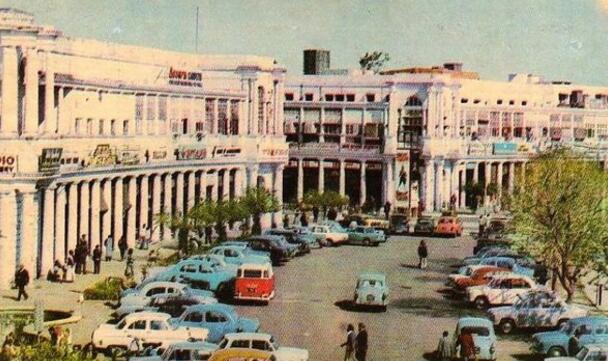
For most Indians who left India from the late 1950s to the 1980s, progress was too slow to come to India. Delhi, India 1975.
对于从20世纪50年代末到80年代离开印度的大多数印度人来说,印度发展太慢了,这是1975年的印度新德里。
In my life experience, I saw people like my father who were technology pioneers. My father was a full professor of Computer Science back in the early 1970s. At a time when India had rolling blackouts several times a day, and it was impossible at times to make a telephone call across town let alone to another city or internationally. He knew down to the component level how a Mainfrx worked and how to write software for it, even in machine language. His journey was one which encompassed the journey of India, as he was part of a generation of Indians who had seen the end of the British Occupation of India, and then sought to educate themselves in the most unbelievable of ways. He would go to the U.S. to seek higher education in 1957, and arrive in a country where for years he could not even eat a single dish he had grown up with. He had left a life where every need he had was taken care of, he went simply to seek knowledge of a world which had advanced while India had been held under colonialism. This group of Indians who came abroad to study, were largely from well off families, but their lives would be very hard in the West. India restricted most if not all funding for their families to support them and it was their shear desire to learn which made all this happen as without their willingness to sacrifice their own well being, they would have just returned home.
在我的生活经历中,我父亲是技术先驱,在20世纪70年代初,我父亲是计算机科学的正式教授。当时,印度一天有好几次停电,有时整个城市内中电话都打不通,更不用说和其他城市打电话,或者打国际长途。
他懂大型机器是如何工作,甚至是使用计算机语言为其编写应用。
他的人生见证了整个印度的发展,因为他是见证了英国结束对印度的占领的第一代印度人;
当时,他想要自己接受非常优质的教育,于是1957年,他去了美国寻求高等教育,一个多年来他甚至连一道家乡菜都吃不到的国家。他离开了衣来伸手饭来张口的生活,他只是为了了解一个在印度被殖民统治期间取得进步的世界。这群印度人来到国外学习,他们大多来自富裕家庭,但他们在西方的生活将非常艰难;印度这边限制了大部分(如果不是全部的话)家庭支持给他们的资金,但正是他们强烈的学习欲望,才导致了这一切的发生,因为如果他们不愿意牺牲自己的福祉,他们就只能卷铺盖回家。
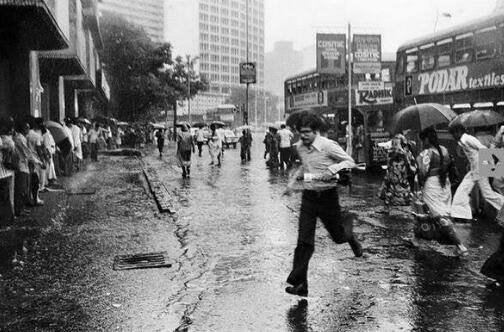
Opening a business in India during the 1970s and 1980s was a task which could take years. Obtaining licensing was a monumental task. Limited consumer choices were the norm during the license raj, Bombay, India, 1975.
上世纪70年代和80年代,在印度创业可能需要数年时间。获得许可是一项艰巨的任务;1975年,印度孟买,许可证发放期间,通常情况下,消费者能获得的产品是很少的。
After living outside and attaining highly specialized skills, many tried to return to India. But, India was a Socialist nation at this time. For my father the issue was our families landholding were under rent control, many businesses including our families utility companies had been nationalized. He saw no way to start a business in India and operate it profitably in the late 1960’s and early 1970s. Though he was offered leading positions in Indian Companies at the time, he wanted to have his own Company. India was still 20 years away from this point and he came back to the West. He would continue to do business with Indian Companies but on his own terms. My father, would become one of the first Computer Dealers and even began to outsource services to India in the late 1980s. Yet India’s socialist business enviornment persisted with hurdles for him to relocate back to India even after his role in high level advisory roles. His heart remained in Saharanpur, and he never could forget our families vast roots in India.
在外生活并获得高度专业化技能后,许多人试图回到印度;但是,当时印度是一个社会主义国家。
对我父亲来说,问题是我们家的土地所有权处于租金控制之下,包括我们家公用事业公司在内的许多企业都被国有化了。
(译注:印度的宪法规定印度是一个社会主义国家,坚持社会主义道路;印度在上个世纪实行“ 租金评估制 ”:土地,房屋,甚至院子里的树都要缴纳税收,房屋不管是自主还是出租都要缴纳税收,不过出租按照租金的高低来收。房子面积越大缴纳越多,应该是为富人准备的。公务事业公司一般是指那些提供公共服务的,比如水电,煤气供暖公司之类的)
20世纪60年代末和70年代初,他看不到在印度创业并盈利的方法。尽管当时印度公司给他提供了领导职位,但他想拥有自己的公司。但是他想在印度实现这一点需要20年,所以他回到了西方。他将继续与印度公司做生意,但是是按照他自己的条件。我的父亲成为了第一批电脑经销商之一,甚至在20世纪80年代末开始将服务外包给印度。然而,印度的社会主义商业环境仍然阻碍着他回到印度,即使是在他担任高级顾问职务之后。他的心仍在撒哈拉普尔,他永远不会忘记我们家族在印度的根。
I saw my father as a remarkable person who could function in vastly different cultures but keep his dignity, pride and identity no matter what the situation. His example has never left me, and it is because of him that I speak fluent Hindi, Punjabi and learnt Sanskrit and Persian. Technology is a natural field for Indians, as mathematics, and philosophy have historically been part of India. It was said in the 1980s that Indian Sanskrit was the most natural language for Computers, the fact that it was NASA which reached this conclusion was all the more impressive. I remember so well the gleaming pride my father had in his eyes when the research was released.
我认为我的父亲是一个了不起的人,他能在完全不同的文化中发挥作用,但无论在什么情况下都能保持他的尊严、骄傲和个性。他的榜样从未离开过我,正是因为他,我能说一口流利的印地语、旁遮普语,还学会了梵语和波斯语。
对于印度人来说,技术是一天他们天然有优势的领域,因为数学和哲学在历史上一直是印度的一部分。据说在20世纪80年代,印度梵语是计算机最自然的语言,事实上是美国国家航空航天局得出了这个结论,这更加令人震惊。我清楚地记得当研究结果公布时,我父亲眼中闪烁的骄傲。
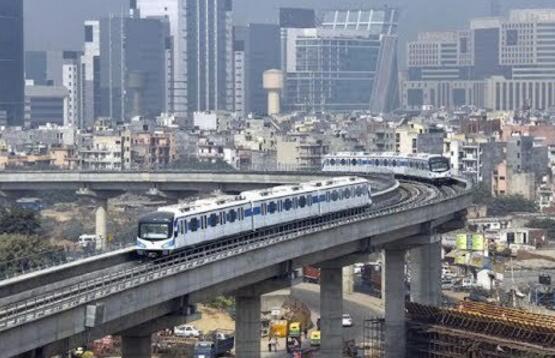
Outside New Delhi, India, 2019.
2019年,印度新德里郊外。
To say India is less developed than China, is very subjective today. I have seen areas of India which are far more developed than many Western Countries. These areas are substantial in size and depth. India’s Airports are at world class standards, along with metro systems and numerous hospitals. Highway infrastructure is on par with developed nations over most of the country. Universities are world class as well. On one occasion I was eating in Delhi one evening, and I wanted some more tea. I looked on the table and noticed a small triangle with a button on it. So I pushed it, and immediately a waiter appeared. He had tea, and I asked him how he knew. He said that after I pushed the button a microphone comes on and stays on for 1 minute, I was talking about tea. He had an earpiece which could hardly be seen. It even told him which table this was.
说印度不如中国发达,在今天是很主观的。我看到印度的一些地区比许多西方国家要发达得多。这些区域在大小和纵深方面都很大。印度的机场、地铁系统和众多医院都达到了世界级标准。在这个国家的大部分地区,公路基础设施与发达国家不相上下。大学也是世界级的;有一次,有一天晚上我在德里吃饭,我想再来点茶。我看了看桌子,发现上面有一个小三角形,上面有一个按钮。于是我按了一下,一个服务员立刻出现了。他上了茶,我问他是怎么知道的。他说,当我按下麦克风的按钮后,麦克风已经打开了,并保持了1分钟,听到了我当时在说茶。他戴着一个几乎看不见的耳机;耳机甚至告诉了他这是哪张桌子。
India’s software apps work better than what I have seen outside of India. Ola had advanced software well in use before its nearest competitors did, and it continues its lead. India’s lead in software development was apparent in 1990s and 2000s, yet this lead has failed to lead to a robust production of proprietary Indian Software Products. The fact is India concentrated on the wrong end of the Computer Industry and while outsourcing services was an obvious way to build the Indian economy in the 1990s it was not an endpoint, as much of the services which were provided are today automated by the cloud. The Indian software industry is to an extent seeing the very same result that my father saw in the early 1990s as large Computer Manufacturers broke relationship with Authorized Dealers to sell direct in an attempt to gain greater profitability and control customer relationships. The end result was the loss of customers. business for most of these companies. Outsourcing has limitations and the evolution of India’s I.T. sector has to be becoming a full scale competitor with unique products and not just services.
印度的软件应用程序比我在印度以外看到的都要好。OLA在使用先进软件方面领先于同行的竞争对手,并继续保持领先地位。印度在软件开发方面的领先地位在20世纪90年代和21世纪头10年是显而易见的,但这种领先未能带来印度专有软件产品的强劲生产。事实是,印度集中在了计算机行业的错误一端,尽管外包服务在20世纪90年代是建设印度经济的一种明显方式,但它并不是终点,因为今天提供的许多服务都是由云实现自动化的。印度软件业在某种程度上让我看到了与我父亲在20世纪90年代初看到的完全相同的结果,当时大型计算机制造商与授权经销商断绝了关系,选了直接销售给客户,试图获得更大的利润并自己掌控与客户关系。最终的结果是,这些公司中的大多数都失去了客户。外包是有局限性的,印度IT行业必须发展成为一个全面的竞争者,拥有独特的产品,而不仅仅是服务。
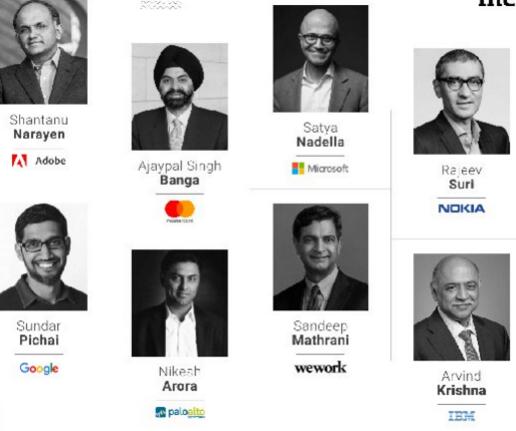
While many people of Indian Origin are today in leading positions in American Corporations, this does not translate into a positive development for India’s economy. The duty of a C.E.O. of a public company is to his shareholders and customers, not his vision of politics of nationalism which they may or may not have. The real fact that India does not have companies like Google or Twitter on a global scale is obvious. Many Indian startups with the capability of becoming largescale household names were bought up by foreign Multinationals before they could pose a true competitive risk. India does not lack talent but it does lack a national vision of where it needs to position itself. Many are simply overjoyed that Indians are C.E.O.’s of large multinational companies without even realizing that though this is a positive development it translates into nothing more or less for India unless such experience is used to build Indian Companies in the long run.
虽然今天许多印度裔人在美国公司中处于领导地位,但这并没有转化为印度经济的积极发展。一家上市公司的首席执行官的职责是对他的股东和客户,而不是他的民族主义政治愿景,他们可能有也可能没有。印度在全球范围内没有像谷歌或推特这样的公司,这是显而易见的事实。许多有能力成为家喻户晓的大公司的印度初创企业,在它们构成真正的竞争风险之前,就被外国跨国公司收购了。印度并不缺乏人才,但它确实缺乏一种国家愿景,不知道自己需要在哪里定位。许多人只是因为印度人成为大型跨国公司的首席执行官而欣喜若狂,甚至没有意识到,尽管这是一个积极的发展,但它对印度来说或多或少没有什么意义,除非这种经验被用来建立印度的公司。
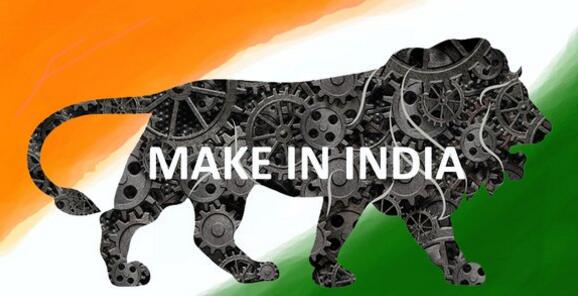
It may take more time than anticipated to “Make in India”, live up to its true potential.
要实现“印度制造”的真正潜力,可能需要比预期更长的时间。
So far India has not been able to attract its own high caliber talent to return to India and to create large scale innovation in India. The real challenge of the 21th Century for India is transform itself from a transactional economy into an economy of invention. The transformation once made will ensure India’s return to it’s historical norm. India is not just a modern state but one of the last remaining of the civilizations which began at the dawn of human history, India has historically created trends not followed them. It has broken scientific barriers, and used mathematics in the most innovative of ways. For when the world was believed to be flat Indian philosophers already knew it was round. When it was said the sun rotated around the Earth, Indian treatises had been written in detail with the concept of Gravity and a 364 day year. They were only off by one day for the year in 500 A.D. It was Indian Scientific knowledge that allowed it have the world’s oldest universities before the Islamic Invasion of India. India was the only civilization that China sent its students to study in before the modern age.
到目前为止,印度还不能吸引自己的高素质人才回到印度,为印度创造大规模的创新。印度在21世纪面临的真正挑战是从交易型经济转变为创新型经济。这种转变一旦完成,将确保印度回归其历史常态。印度不仅仅是一个现代国家,也是人类延续至今的古文明之一,印度在历史上创造了潮流而不是跟随潮流。
印度打破了科学壁垒,以最具创新性的方式使用数学。因为当世界被认为是平的时,印度哲学家已经知道它是圆的。当说太阳围绕地球旋转时,印度的论文就已经详细地用重力和一年364天的概念;在公元500年,他们的一年仅仅比现在只少一天。在伊斯兰入侵印度之前,正是印度的科学知识让它拥有了世界上最古老的大学。并且印度是近代以前中国派遣学生学习的唯一文明。
While claims can be made that China is more advanced than India today, and Indians are leading U.S. companies more so than other groups, the fact is none of this matters as much as it seems. People such as my father and those in his generation began a process of gaining knowledge for the betterment of the world, and especially for the people of India and Indian Origin. India’s road to regaining its historical significance only began 75 years ago, and it can only be imagined where India will be 75 years from now. My father stated in 1983, “India’s greatest resource is renewable for it is the talent of it’s people.”, I have full faith that this resource will surprise the world just like as they have done since the ages of antiquity.
虽然可以声称中国今天比印度更先进,印度人比其他群体更能领导美国公司,但事实是这些都没有看起来那么重要。像我父亲这样的人和他那一代人开始了获取知识的过程,以改善世界,特别是印度人和印度裔。印度重新获得历史意义的道路在75年前才开始,75年后的印度会在哪里,只能靠想象。
我的父亲在1983年说,“印度最大的资源是可再生的,因为这种资源是印度人的才能。”
我完全相信,这种资源将会像他们在古代那样,让世界超级震撼。
Indians have a slave mentality. Since time immemorial we have been enslaved, first by the Islamic rulers, and then by the Britishers, now it is the American tech giants. They love being slaves. They love working for American companies, because they don’t want to risk it, they play it safe, so instead of innovating, instead of creating anything new, they get settled for foreign companies, they start toiling for their American masters.
This slave mentality permeates our culture, it is inherent to every Indian. Everyone here wants to play it safe, to traverse the most traveled road.
Chinese, on the other hand, are innovative and ingenious. They create their own FB, Google, YouTube and become CEOs of these.
Which of these is better for one’s country?, I ask you.
印度人有奴隶心态;自古以来,我们一直被奴役,先是被伊斯兰统治者,然后是英国人,现在是美国科技巨头。他们喜欢做奴隶,他们喜欢为美国公司工作,因为他们不想冒这个险,他们稳扎稳打,所以他们不去创新,不去创造新的东西,他们满足于外国公司,他们开始为他们的美国主子辛苦工作。
这种奴隶心态渗透在我们的文化中,是每个印度人与生俱来的。这里的每个人都想谨慎行事,走过最多人走过的路。
另一方面,中国人具有创新性和独创性。他们创建了自己的FB、谷歌、YouTube,并成为这些网站的首席执行官。
问问你们自己,中印的方式,哪一个对自己的国家更好呢?
______
Nikhil Bhaskaran
Having lived in both countries and as part of the technology industry here is my take :
India and China both produce some high quality talent in technology like any other country but even a small % from these countries translate to a huge number because of sheer population size.
我在这两个国家都生活过,也是科技行业的一员,以下是我的看法:
和其他国家一样,印度和中国都培养出了一些高质量的科技人才,但由于人口规模庞大,即使这些国家的一小部分人才也意味着巨大的数量。
Now what are the opportunities for these smarties ?
那么现在这些聪明人有哪些选择呢?:
Indians :
1)Take a job in USA or Europe the best of all options , because it is merit based , well paid and comfortable life .Try to compete,go up the corporate ladder and feel first class citizen of different country.
2)Try to do something in India and there is a small chance you may succeed in a highly feudal system controlled by the powerful and a semi merit based one so it is way way too hard compared to option 1 and the quality of life is nowhere near to west.
印度人:
1,在美国或欧洲找一份工作是最好的选择,因为这是基于价值的、高薪的和舒适的生活。尝试竞争,攀登公司阶梯,感受成为不同国家的一等公民。
2,试着在印度做点什么,但在一个由权贵控制的高度封建的制度下,你可能只有一点点成功的机会,所以与选择1相比,这太难了,并且生活质量也远不及西方。
Chinese:
1)Start something of their own in China, growing domestic market , great infrastructure , talent pool availability , ease of doing business , easy capital availability , feel like first class citizen since it is their own country where westerners find it hard to compete with them.
2) Move to corporate America , work crazy hard always feel like a second class citizen .Miss their country and culture .
中国人:
1,在中国开始自己的事业,不断增长的国内市场,良好的基础设施,优质的人才储备,做生意容易,容易获得资金,感觉像一等公民,因为这是他们自己的国家,西方人很难与之竞争。
2,搬到美国公司,拼命工作,总觉得自己是二等公民,;会想念他们自己的国家和文化。
Summary : So for Indians corporate America/Europe is the only good option available so most try for it and give it their best and get to top CEO posts while for Chinese there are Chinese companies , their own startups and many other options within China so many of them give it a pass and try to compete with American corporations instead of working for them and that changes the number of CEOs west can get from China.
总结:
因此,对印度人来说,美国或者欧洲公司是唯一的好选择,所以大多数人都努力尝试,尽最大努力,并获得首席执行官的职位;
而对中国人来说,中国有中国公司,他们有自己的创业公司和许多其他选择,所以他们中的许多人都放弃了国外,而是试图与美国公司竞争,而不是为他们工作,这改变了西方可以从中国获得的CEO的数量。
——————
Baba Vickram Aditya Bedi

For most Indians who left India from the late 1950s to the 1980s, progress was too slow to come to India. Delhi, India 1975.
对于从20世纪50年代末到80年代离开印度的大多数印度人来说,印度发展太慢了,这是1975年的印度新德里。
In my life experience, I saw people like my father who were technology pioneers. My father was a full professor of Computer Science back in the early 1970s. At a time when India had rolling blackouts several times a day, and it was impossible at times to make a telephone call across town let alone to another city or internationally. He knew down to the component level how a Mainfrx worked and how to write software for it, even in machine language. His journey was one which encompassed the journey of India, as he was part of a generation of Indians who had seen the end of the British Occupation of India, and then sought to educate themselves in the most unbelievable of ways. He would go to the U.S. to seek higher education in 1957, and arrive in a country where for years he could not even eat a single dish he had grown up with. He had left a life where every need he had was taken care of, he went simply to seek knowledge of a world which had advanced while India had been held under colonialism. This group of Indians who came abroad to study, were largely from well off families, but their lives would be very hard in the West. India restricted most if not all funding for their families to support them and it was their shear desire to learn which made all this happen as without their willingness to sacrifice their own well being, they would have just returned home.
在我的生活经历中,我父亲是技术先驱,在20世纪70年代初,我父亲是计算机科学的正式教授。当时,印度一天有好几次停电,有时整个城市内中电话都打不通,更不用说和其他城市打电话,或者打国际长途。
他懂大型机器是如何工作,甚至是使用计算机语言为其编写应用。
他的人生见证了整个印度的发展,因为他是见证了英国结束对印度的占领的第一代印度人;
当时,他想要自己接受非常优质的教育,于是1957年,他去了美国寻求高等教育,一个多年来他甚至连一道家乡菜都吃不到的国家。他离开了衣来伸手饭来张口的生活,他只是为了了解一个在印度被殖民统治期间取得进步的世界。这群印度人来到国外学习,他们大多来自富裕家庭,但他们在西方的生活将非常艰难;印度这边限制了大部分(如果不是全部的话)家庭支持给他们的资金,但正是他们强烈的学习欲望,才导致了这一切的发生,因为如果他们不愿意牺牲自己的福祉,他们就只能卷铺盖回家。

Opening a business in India during the 1970s and 1980s was a task which could take years. Obtaining licensing was a monumental task. Limited consumer choices were the norm during the license raj, Bombay, India, 1975.
上世纪70年代和80年代,在印度创业可能需要数年时间。获得许可是一项艰巨的任务;1975年,印度孟买,许可证发放期间,通常情况下,消费者能获得的产品是很少的。
After living outside and attaining highly specialized skills, many tried to return to India. But, India was a Socialist nation at this time. For my father the issue was our families landholding were under rent control, many businesses including our families utility companies had been nationalized. He saw no way to start a business in India and operate it profitably in the late 1960’s and early 1970s. Though he was offered leading positions in Indian Companies at the time, he wanted to have his own Company. India was still 20 years away from this point and he came back to the West. He would continue to do business with Indian Companies but on his own terms. My father, would become one of the first Computer Dealers and even began to outsource services to India in the late 1980s. Yet India’s socialist business enviornment persisted with hurdles for him to relocate back to India even after his role in high level advisory roles. His heart remained in Saharanpur, and he never could forget our families vast roots in India.
在外生活并获得高度专业化技能后,许多人试图回到印度;但是,当时印度是一个社会主义国家。
对我父亲来说,问题是我们家的土地所有权处于租金控制之下,包括我们家公用事业公司在内的许多企业都被国有化了。
(译注:印度的宪法规定印度是一个社会主义国家,坚持社会主义道路;印度在上个世纪实行“ 租金评估制 ”:土地,房屋,甚至院子里的树都要缴纳税收,房屋不管是自主还是出租都要缴纳税收,不过出租按照租金的高低来收。房子面积越大缴纳越多,应该是为富人准备的。公务事业公司一般是指那些提供公共服务的,比如水电,煤气供暖公司之类的)
20世纪60年代末和70年代初,他看不到在印度创业并盈利的方法。尽管当时印度公司给他提供了领导职位,但他想拥有自己的公司。但是他想在印度实现这一点需要20年,所以他回到了西方。他将继续与印度公司做生意,但是是按照他自己的条件。我的父亲成为了第一批电脑经销商之一,甚至在20世纪80年代末开始将服务外包给印度。然而,印度的社会主义商业环境仍然阻碍着他回到印度,即使是在他担任高级顾问职务之后。他的心仍在撒哈拉普尔,他永远不会忘记我们家族在印度的根。
I saw my father as a remarkable person who could function in vastly different cultures but keep his dignity, pride and identity no matter what the situation. His example has never left me, and it is because of him that I speak fluent Hindi, Punjabi and learnt Sanskrit and Persian. Technology is a natural field for Indians, as mathematics, and philosophy have historically been part of India. It was said in the 1980s that Indian Sanskrit was the most natural language for Computers, the fact that it was NASA which reached this conclusion was all the more impressive. I remember so well the gleaming pride my father had in his eyes when the research was released.
我认为我的父亲是一个了不起的人,他能在完全不同的文化中发挥作用,但无论在什么情况下都能保持他的尊严、骄傲和个性。他的榜样从未离开过我,正是因为他,我能说一口流利的印地语、旁遮普语,还学会了梵语和波斯语。
对于印度人来说,技术是一天他们天然有优势的领域,因为数学和哲学在历史上一直是印度的一部分。据说在20世纪80年代,印度梵语是计算机最自然的语言,事实上是美国国家航空航天局得出了这个结论,这更加令人震惊。我清楚地记得当研究结果公布时,我父亲眼中闪烁的骄傲。

Outside New Delhi, India, 2019.
2019年,印度新德里郊外。
To say India is less developed than China, is very subjective today. I have seen areas of India which are far more developed than many Western Countries. These areas are substantial in size and depth. India’s Airports are at world class standards, along with metro systems and numerous hospitals. Highway infrastructure is on par with developed nations over most of the country. Universities are world class as well. On one occasion I was eating in Delhi one evening, and I wanted some more tea. I looked on the table and noticed a small triangle with a button on it. So I pushed it, and immediately a waiter appeared. He had tea, and I asked him how he knew. He said that after I pushed the button a microphone comes on and stays on for 1 minute, I was talking about tea. He had an earpiece which could hardly be seen. It even told him which table this was.
说印度不如中国发达,在今天是很主观的。我看到印度的一些地区比许多西方国家要发达得多。这些区域在大小和纵深方面都很大。印度的机场、地铁系统和众多医院都达到了世界级标准。在这个国家的大部分地区,公路基础设施与发达国家不相上下。大学也是世界级的;有一次,有一天晚上我在德里吃饭,我想再来点茶。我看了看桌子,发现上面有一个小三角形,上面有一个按钮。于是我按了一下,一个服务员立刻出现了。他上了茶,我问他是怎么知道的。他说,当我按下麦克风的按钮后,麦克风已经打开了,并保持了1分钟,听到了我当时在说茶。他戴着一个几乎看不见的耳机;耳机甚至告诉了他这是哪张桌子。
India’s software apps work better than what I have seen outside of India. Ola had advanced software well in use before its nearest competitors did, and it continues its lead. India’s lead in software development was apparent in 1990s and 2000s, yet this lead has failed to lead to a robust production of proprietary Indian Software Products. The fact is India concentrated on the wrong end of the Computer Industry and while outsourcing services was an obvious way to build the Indian economy in the 1990s it was not an endpoint, as much of the services which were provided are today automated by the cloud. The Indian software industry is to an extent seeing the very same result that my father saw in the early 1990s as large Computer Manufacturers broke relationship with Authorized Dealers to sell direct in an attempt to gain greater profitability and control customer relationships. The end result was the loss of customers. business for most of these companies. Outsourcing has limitations and the evolution of India’s I.T. sector has to be becoming a full scale competitor with unique products and not just services.
印度的软件应用程序比我在印度以外看到的都要好。OLA在使用先进软件方面领先于同行的竞争对手,并继续保持领先地位。印度在软件开发方面的领先地位在20世纪90年代和21世纪头10年是显而易见的,但这种领先未能带来印度专有软件产品的强劲生产。事实是,印度集中在了计算机行业的错误一端,尽管外包服务在20世纪90年代是建设印度经济的一种明显方式,但它并不是终点,因为今天提供的许多服务都是由云实现自动化的。印度软件业在某种程度上让我看到了与我父亲在20世纪90年代初看到的完全相同的结果,当时大型计算机制造商与授权经销商断绝了关系,选了直接销售给客户,试图获得更大的利润并自己掌控与客户关系。最终的结果是,这些公司中的大多数都失去了客户。外包是有局限性的,印度IT行业必须发展成为一个全面的竞争者,拥有独特的产品,而不仅仅是服务。

While many people of Indian Origin are today in leading positions in American Corporations, this does not translate into a positive development for India’s economy. The duty of a C.E.O. of a public company is to his shareholders and customers, not his vision of politics of nationalism which they may or may not have. The real fact that India does not have companies like Google or Twitter on a global scale is obvious. Many Indian startups with the capability of becoming largescale household names were bought up by foreign Multinationals before they could pose a true competitive risk. India does not lack talent but it does lack a national vision of where it needs to position itself. Many are simply overjoyed that Indians are C.E.O.’s of large multinational companies without even realizing that though this is a positive development it translates into nothing more or less for India unless such experience is used to build Indian Companies in the long run.
虽然今天许多印度裔人在美国公司中处于领导地位,但这并没有转化为印度经济的积极发展。一家上市公司的首席执行官的职责是对他的股东和客户,而不是他的民族主义政治愿景,他们可能有也可能没有。印度在全球范围内没有像谷歌或推特这样的公司,这是显而易见的事实。许多有能力成为家喻户晓的大公司的印度初创企业,在它们构成真正的竞争风险之前,就被外国跨国公司收购了。印度并不缺乏人才,但它确实缺乏一种国家愿景,不知道自己需要在哪里定位。许多人只是因为印度人成为大型跨国公司的首席执行官而欣喜若狂,甚至没有意识到,尽管这是一个积极的发展,但它对印度来说或多或少没有什么意义,除非这种经验被用来建立印度的公司。

It may take more time than anticipated to “Make in India”, live up to its true potential.
要实现“印度制造”的真正潜力,可能需要比预期更长的时间。
So far India has not been able to attract its own high caliber talent to return to India and to create large scale innovation in India. The real challenge of the 21th Century for India is transform itself from a transactional economy into an economy of invention. The transformation once made will ensure India’s return to it’s historical norm. India is not just a modern state but one of the last remaining of the civilizations which began at the dawn of human history, India has historically created trends not followed them. It has broken scientific barriers, and used mathematics in the most innovative of ways. For when the world was believed to be flat Indian philosophers already knew it was round. When it was said the sun rotated around the Earth, Indian treatises had been written in detail with the concept of Gravity and a 364 day year. They were only off by one day for the year in 500 A.D. It was Indian Scientific knowledge that allowed it have the world’s oldest universities before the Islamic Invasion of India. India was the only civilization that China sent its students to study in before the modern age.
到目前为止,印度还不能吸引自己的高素质人才回到印度,为印度创造大规模的创新。印度在21世纪面临的真正挑战是从交易型经济转变为创新型经济。这种转变一旦完成,将确保印度回归其历史常态。印度不仅仅是一个现代国家,也是人类延续至今的古文明之一,印度在历史上创造了潮流而不是跟随潮流。
印度打破了科学壁垒,以最具创新性的方式使用数学。因为当世界被认为是平的时,印度哲学家已经知道它是圆的。当说太阳围绕地球旋转时,印度的论文就已经详细地用重力和一年364天的概念;在公元500年,他们的一年仅仅比现在只少一天。在伊斯兰入侵印度之前,正是印度的科学知识让它拥有了世界上最古老的大学。并且印度是近代以前中国派遣学生学习的唯一文明。
While claims can be made that China is more advanced than India today, and Indians are leading U.S. companies more so than other groups, the fact is none of this matters as much as it seems. People such as my father and those in his generation began a process of gaining knowledge for the betterment of the world, and especially for the people of India and Indian Origin. India’s road to regaining its historical significance only began 75 years ago, and it can only be imagined where India will be 75 years from now. My father stated in 1983, “India’s greatest resource is renewable for it is the talent of it’s people.”, I have full faith that this resource will surprise the world just like as they have done since the ages of antiquity.
虽然可以声称中国今天比印度更先进,印度人比其他群体更能领导美国公司,但事实是这些都没有看起来那么重要。像我父亲这样的人和他那一代人开始了获取知识的过程,以改善世界,特别是印度人和印度裔。印度重新获得历史意义的道路在75年前才开始,75年后的印度会在哪里,只能靠想象。
我的父亲在1983年说,“印度最大的资源是可再生的,因为这种资源是印度人的才能。”
我完全相信,这种资源将会像他们在古代那样,让世界超级震撼。











